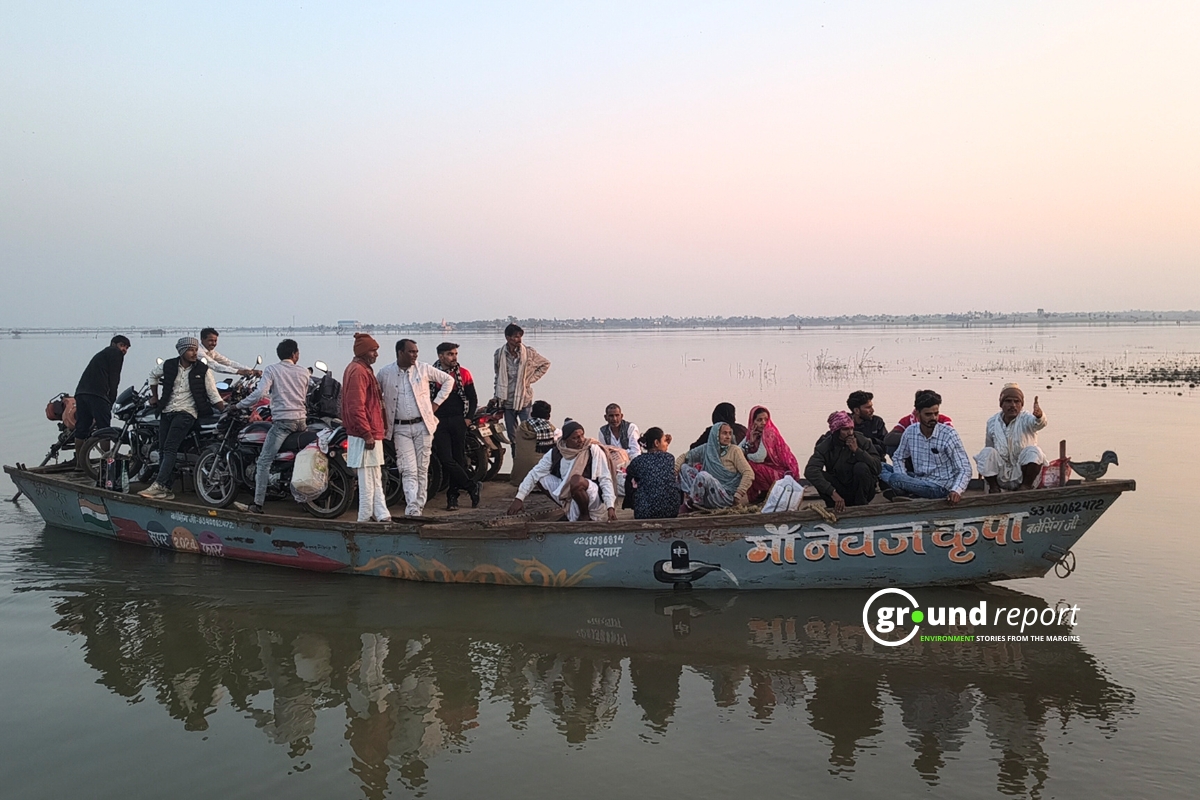The “Kale Pani Da Morcha,” a significant protest march against the pollution of the Buddha Dariya, recently saw a large gathering of environmentalists, activists, and concerned citizens from different parts of Punjab, Haryana, and Rajasthan. The march started at Verka Milk Plant on Ferozepur Road and ended at Bhai Bala Chowk in Ludhiana, symbolizing a strong call for action against the pollution crisis.
What is Kale Pani Da Morcha?
“Kale Pani Da Morcha” is a protest movement addressing severe pollution in Buddha Dariya, a tributary of the Sutlej River. The community is frustrated with the unchecked flow of toxic and black water into the river, impacting health and livelihood. The movement demands immediate government intervention to stop the pollution and hold the responsible industries accountable.
I joined a protest march organised by #KalePaniDaMorcha at Ludhiana today to protest against the scourge of dirty water pollution from Buddha Dariya that residents of the city are living with for over 4 decades. The toxic water eventually flows into river Satluj. #Punjab pic.twitter.com/XuZBylKLfz
— Devinder Sharma (@Devinder_Sharma) August 24, 2024
What are their demands?
The protesters have outlined three primary demands:
-
The dyeing industry significantly contributes to pollution in Buddha Dariya. Protesters demand a complete ban on operations until effective pollution control measures are in place.
-
Accusations of corruption and inefficiency in the PPCB have led to demands for its dismantling and restructuring. Protesters argue that the PPCB has failed to enforce environmental regulations effectively.
-
The protesters demand strict legal action against industries and individuals responsible for polluting the river, holding them accountable for the environmental and public health damage.
According to the Tribune, residents of Sutlej’s adjacent villages claim that groundwater in these rural regions is being contaminated by the nullah’s hazardous water, leading to numerous hepatitis cases. Officials visited the nullah multiple times in 2014 in response to a complaint against the Punjab Government to the National Green Tribunal, but no action was taken. The project stalled when the state government requested Engineers Limited to compile a report on reducing pollution.
Protest and its origins
The Kale Pani Da Morcha was organized by environmental and social organizations like Naroya Punjab Manch, Public Action Committee (PAC), Bhai Ghaniya Cancer Roko Sewa Society, Punjab Vatavaran Chetna Lehar, and Zira Sangharsh Morcha. NGOs from Rajasthan, like Dushit Jal, Asurakshit Kal, and Zehr Se Mukti Andolan, joined the protest in Ludhiana.
The march wasn’t spontaneous but the result of years of concern over Buddha Dariya. In February, PAC and Buddha Dariya Action Front (BDAF) conducted awareness drives about water pollution. These efforts have now escalated into a protest, reflecting the community’s urgency for clean water.
The pollution in Buddha Dariya isn’t recent. For over thirty years, government initiatives have failed to deliver results. Despite spending over Rs 2,000 crore on cleanup, the water remains polluted. Milestones like the Sutlej Action Plan in 1996 and subsequent projects haven’t addressed the root causes. People’s frustration has grown with each failed promise, leading to the current protest.
Kale Pani Da Morcha has warned the government: take action in two weeks, or they’ll act on their own, including shutting down the toxic drain on September 15, with significant consequences.
Keep Reading
Journey of Ludhiana’s Buddha Nullah now a toxic water body
Know all about Buddha Darya Action front and their demands
India braces for intense 2024 monsoon amid recent deadly weather trends
Support us to keep independent environmental journalism alive in India.
Follow Ground Report on X, Instagram and Facebook for environmental and underreported stories from the margins. Give us feedback on our email id greport2018@gmail.com.
Don’t forget to Subscribe to our weekly newsletter, Join our community on WhatsApp, and Follow our YouTube Channel for video stories.






